
Çocuk yetiştirilmesi ve eğitimi söz konusu olduğunda en temel ilke şudur:
En iyi anne/baba/öğretmen kendisini en hızlı “geçersiz” hale getirebilendir.
Her çocuk özgün ve özeldir.
Kendine ait hususiyetleriyle birlikte dünyaya doğar.
Sadece yaratılışına ait kodlar üzerinden gidilerek gelişim ve eğitimine katkı verilebilir.
O yaratılıştan konulmuş kodlara rağmen asla bir davranış kazandırılamaz.
Kuş uçar, balık, yüzer, yılan sürünür.
Üç hayvana uçma, yüzme ve sürünme dersini zorunlu yaparsan üçünü de başarısız hale getirirsin.
Anne/babalar çocuklarını iyi gözlemlemeli, kişiliğinin gelişimine saygı duymalı, bu hususta onu desteklemeli, gölge olmamalı, asla dikte etmemeli.
Yaratılıştan getirdiği özgün kişiliğine aykırı talepler anne/baba tarafından ısrarla dikte edilen çocuk ikinci bir kişilik geliştirmek zorunda kalır.
Anne/babanın bu baskısı uzun süre devam ederse özgün kişiliği ihmal ve istismara uğrayan çocuk mecburen doğal olmayan ikinci kişilikle yoluna devam etmek zorunda kalır.
Geçte olsa özgürlüğünü eline aldığında özgün kişiliğine dönmeye çalışsa da geldiği mesafenin çok gerisinde kalmış olduğu için tam anlamıyla bütünleşemez.
Artık çift kişilikle hayatına devam etmek zorundadır.
Bu da sürpriz bir şahsiyet demektir.
Kendinin dahi nerede/ne zaman/nasıl davranacağını ön göremediği garip bir kişilik yapısı demektir.
Sürekli iniş/çıkışların olduğu, zaman zaman patlamaların yaşandığı zorlu bir süreç ölümüne kadar ona eşlik edecektir.
Maria Montessori de çocukların bu özgünlüğüne dikkat çekmeye çalışmıştı.
İtalya’nın ilk kadın doktor ünvanına sahip olan Maria Montessori, 1907 yılında kurmuş olduğu çocuk evi “Casa dei Bambini” ile Montessori eğitimi çalışmalarına başlamıştır.
“Çocukları izledim, onları yakından inceledim ve bana, onlara nasıl öğreteceğimi öğrettiler.”
Dr. Maria Montessori’ye göre çocuklar, yetişkinlerden çok daha farklı bir şekilde düşünür, algılar ve öğrenir. Hayatın en önemli dönemi üniversite çalışmaları değil, doğumdan altı yaşa kadar olan süredir. Çünkü bu, bir çocuğun gelecekte olacağı yetişkini inşa ettiği dönemdir. Sadece zekâ değil, insanın bütün mümkün becerileri bu dönemde oluşur. Hiçbir yaşta çocuk, zekice bir yardıma, bu dönemde olduğu kadar ihtiyaç duymaz.
Montessori eğitimi, özel olarak hazırlanmış bir ortamda var olan materyaller ile çocukların bireysel ilgi ve eğilimlerine göre deneyim kazandırarak çevreyi kavramasına yardımcı olur. En öne çıkan özelliği ‘serbest çalışma’ olan Montessori eğitiminde, çocuk karar verme konusunda özgürdür. Neyle meşgul olmak istediğini, ne kadar süreyle ve kiminle olacağını kendisi belirler. Böylece, kendi kararlarını uygulayabilen çocuklarda doğal yoldan bir disiplin gelişir ve sakin bir ortam oluşur.
Eğitim, birilerinin aktardığı sözleri dinlemekten ziyade, çocuğun içinde bulunduğu koşulları deneyimlemesiyle ilerleyen, doğal bir süreçtir.
Çocuklarda yetişkinleri taklit etme olanağı sağlayan günlük işler, onlar için heyecan vericidir. Taklit ise çocukların günlük hayatta ihtiyaç duyacakları becerileri hızla geliştirir.
Montessori eğitimi ile çocuk; duyuları aracılığıyla sesleri, kokuları, tatları, geometrik cisimleri, boyutları, ağırlıkları ve farklı yüzeyleri öğrenir. Çocukların okuma istekleri bastırılmaz ve ilgili konularda kitaplardan yardım almaları sağlanır. Okuma-yazmaya hazırlık yapmak adına kalem tutma becerileri geliştirilmeye çalışılır. Bu konuda özel materyallerden faydalanılır.
Çocukların kıtalar, okyanuslar, ülkeler ve şehirlerin yerini öğrenebilmesi için puzzle haritalar kullanılır. Özellikle matematik hususunda çocukların gerekli ilgisini kazanmak ve zevkli bir hale getirmek için somut matematik materyalleriyle çalışma olanağı sağlanır.
İnsanda zekâ ancak arzuyla yönetilir. Arzunun olabilmesi için haz ve neşenin olması gerekir. Zekâ ancak neşe içinde gelişerek meyve verir. Koşucular için nefes alma neyse, eğitim için de öğrenme neşesi odur.
Doğumuyla anneye bağlı olan bebeğin ilk bağımlılığına son vermek için kordonu/göbek bağı kesilir.
Anne/baba/öğretmen sonrasında görünmeyen kordonlarla çocuğu kendi özgün ve özel yolculuğunda desteklemeli ama vakti gelince o kordonları kesmeyi de bilmelidirler.
“Bağımlılık” aile içinde başlatılan ve dalga dalga sosyal hayatta kişilere ve maddelere yayılarak devam eden patolojik bir süreçtir.
Bu sürecin olmaması için anne/baba/öğretmenlere düşen çocuğa gölge etmeden onu özgün ve özgür kişiliğini/duruşunu geliştirme hususunda süreli/sınırlı destek olmaktır.
A child whose posture is not supported becomes dependent.
(Montessori Education)
The most basic principle when it comes to raising and educating children is this:
The best mother/father/teacher is the one who can make himself/herself “invalid” the fastest.
Every child is unique and special.
He is born into the world with his own characteristics.
Contribution to its development and education can only be made by going through the codes of its creation.
Despite the codes placed in that creation, a behavior can never be taught.
The bird flies, the fish swims, the snake crawls.
If you make flying, swimming and crawling lessons mandatory for three animals, you will fail all three.
Parents should observe their children well, respect their personality development, support them in this regard, not be a shadow, never dictate.
The child, whose demands are insistently dictated by the mother/father contrary to his original personality, is forced to develop a second personality.
If this pressure from the mother/father continues for a long time, the child whose original personality is neglected and abused will have to continue on his way with an unnatural second personality.
Even though he tries to return to his original personality when he finally gets his freedom, he cannot fully integrate because he is far behind the distance he has come.
Now he has to continue his life with a double personality.
This means a surprising person.
It means a strange personality structure in which even he cannot predict where/when/how he will act.
A difficult process with constant ups and downs and explosions from time to time will accompany him until his death.
Maria Montessori also tried to draw attention to this uniqueness of children.
Maria Montessori, who has the title of Italy's first female doctor, started her Montessori education studies with the children's home "Casa dei Bambini", which she founded in 1907.
“I watched the kids, studied them closely, and they taught me how to teach them.”
Dr. According to Maria Montessori, children think, perceive and learn in a very different way than adults. The most important period of life is not university studies, but the period from birth to age six. Because this is the period when a child builds the adult he will become in the future. Not only intelligence, but all possible skills of a person are formed in this period. At no other age does a child need more intelligent help than at this time.
Montessori education helps children understand the environment by providing them with experiences based on their individual interests and tendencies, with materials available in a specially prepared environment. In Montessori education, the most prominent feature of which is 'free work', the child is free to make decisions. He decides what he wants to do, for how long and with whom. Thus, children who can make their own decisions naturally develop discipline and a calm environment is created.
Education is a natural process that progresses through the child's experience of the conditions he finds himself in, rather than listening to someone's words.
Daily tasks that allow children to imitate adults are exciting for them. Imitation, on the other hand, quickly develops the skills children will need in daily life.
With Montessori education, the child; Through his senses, he learns sounds, smells, tastes, geometric objects, sizes, weights and different surfaces. Children's desire to read is not suppressed and they are provided with help from books on relevant subjects. In order to prepare for reading and writing, efforts are made to develop pencil-holding skills. Special materials are used in this regard.
Puzzle maps are used so that children can learn the location of continents, oceans, countries and cities. Especially in mathematics, children are given the opportunity to work with concrete mathematical materials to gain the necessary interest and make it enjoyable.
Human intelligence is governed only by desire. In order for there to be desire, there must be pleasure and joy. Intelligence bears fruit only by developing in joy. The joy of learning is to training what breathing is to runners.
The cord/umbilical cord is cut to end the initial dependence of the baby, who is dependent on the mother at birth.
Mother/father/teacher should support the child on his/her own unique and special journey with the cords that are not visible afterwards, but they should also know how to cut those cords when the time comes.
“Addiction” is a pathological process that starts within the family and continues by spreading to people and substances in social life.
In order to prevent this process from happening, the responsibility of parents/teachers is to provide temporary/limited support to the child in developing his/her unique and free personality/stance without overshadowing the child.
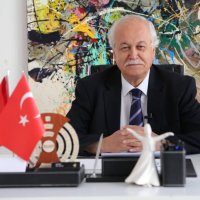 Erol Sunat
Biz Bizden Gidemeyiz
Erol Sunat
Biz Bizden Gidemeyiz
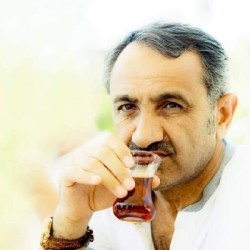 Dr. Cemil Paslı
Özeleştiri mi/Savunma mı?
Dr. Cemil Paslı
Özeleştiri mi/Savunma mı?
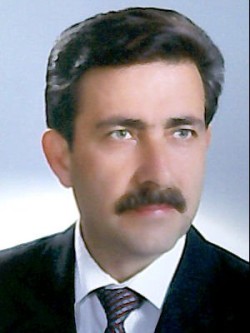 Mehmet Karataş
Lale Devrini Yaşıyoruz.
Mehmet Karataş
Lale Devrini Yaşıyoruz.
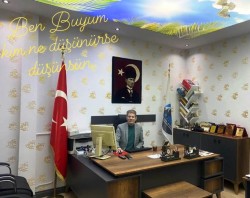 İmdat Yayla
Teşkilatın İl ve İlçe Başkanlığına Liyakatli insanlar Getirilmeli
İmdat Yayla
Teşkilatın İl ve İlçe Başkanlığına Liyakatli insanlar Getirilmeli
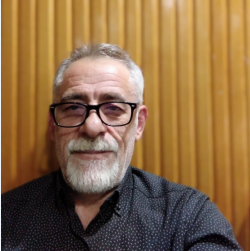 ŞÜKRÜ PORTAKAL
Neden Kazanamadılar
ŞÜKRÜ PORTAKAL
Neden Kazanamadılar
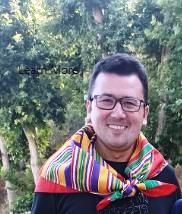 Muhammed Kemal Erdem
Harunlar Köyü Adını Seyyid Harun Veli’den mi Alıyor?
Muhammed Kemal Erdem
Harunlar Köyü Adını Seyyid Harun Veli’den mi Alıyor?
 Mahmut İşcan (İlçe Milli Eğitim Müdürü)
Güzel Bak Güzel Gör
Mahmut İşcan (İlçe Milli Eğitim Müdürü)
Güzel Bak Güzel Gör
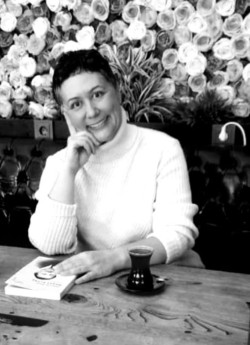 Ayşe ÜNÜVAR :(Uzm. Psk. Dan. Eğitimci Yazar)
Eskidendi Şivlilik
Ayşe ÜNÜVAR :(Uzm. Psk. Dan. Eğitimci Yazar)
Eskidendi Şivlilik
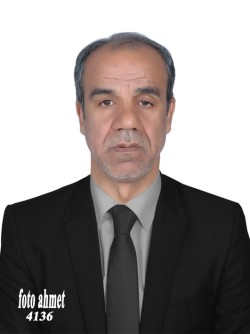 Duran Çölcü
Savunma Sanayinde Konya’nın Gücü Giderek Artıyor
Duran Çölcü
Savunma Sanayinde Konya’nın Gücü Giderek Artıyor
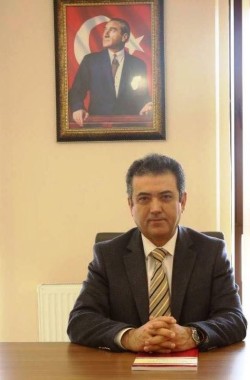 PROF. DR. ŞAHİN AKINCI
Bir Yargı Krizi: Yargıtay’ın Şerafettin Can Atalay Kararı
PROF. DR. ŞAHİN AKINCI
Bir Yargı Krizi: Yargıtay’ın Şerafettin Can Atalay Kararı
